|
Invitee par l'equipe Palacande, Catherine H. Freudenreich (Professor of Biology, School of Arts & Sciences, Tufts University, Medford, MA, USA) presentera un seminaire de l'Institut Jacques Monod sur le theme : Overcoming natural replication barriers formed by DNA structures and the role of repositioning to the nuclear periphery Resume : All cells encounter replication barriers upon genome duplication and must overcome those barriers to survive. Many repeat sequences can form alternative DNA structures that interfere with replication and repair. This can lead to disease-causing repeat expansions. Alternatively, breaks within structure-forming repeats cause chromosome deletions and rearrangements, which are common in cancer cells undergoing replication stress. One strategy that cells use to overcome some types of replication barriers or difficult-to-repair lesions is repositioning to the nuclear periphery. I will describe research from my lab on how structure-forming DNA repeats are replicated and repaired and the role of relocation to the nuclear pore in these processes. Recent results on the mechanisms used to move damaged chromosomes to the nuclear pore and the role of this pathway in protecting genome instability will be covered. Plus d'infos... Tags: DNA replication, Mutation, Biotechnology, Chromosomes, Molecular genetics, DNA, Genome instability, Viral replication, Repeated sequence, Eukaryotic DNA replication, Origin of replication Annonce publiée le 29-01-2026 |
|
| Institut Jacques Monod Institut Jacques Monod Salle Francois Jacob, 15 rue Helene Brion, Paris, France |



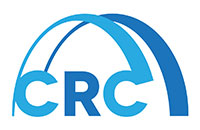






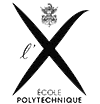





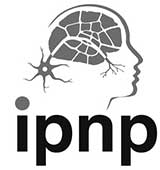

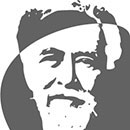

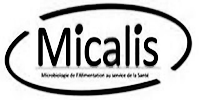






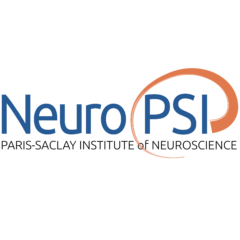
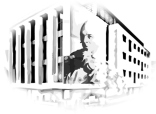

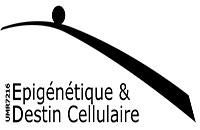



Pour afficher les séminaires d'un seul institut, appuyer d'abord sur 'None' puis sur l'institut de votre choix.
-
-
SPARTA® permet le marquage chimique de nanoparticules individuelles, offrant des capacites bien superieures aux mesures classiques realisees sur des ensembles. Cela en fait un outil puissant pour les chercheurs travaillant sur des nanoparticules telles que les nanoparticules lipidiques ou polymeriques (LNP/PNP), les vesicules extracellulaires (EV), ainsi que d'autres formulations nanometriques heterogenes. SPARTA® est deja adopte dans le milieu academique et industriel, accelerant les pipelines de developpement, ameliorant la caracterisation des produits et des formulations, et soutenant une prise de decision robuste. Nous examinerons des etudes de cas evaluant la quantite relative et l'heterogeneite des motifs de ciblage presents a la surface des nanoparticules, des etudes de chargement demontrant les ratios charge/non charge, ainsi qu'un profilage chimique detaille prouvant que tous les composants cles ont bien ete incorpores dans les produits nanoparticulaires.
Plus d'infos...
Annonce publiée le 19-02-2026


Institut Curie
Centre de recherche - Paris -
Invite par: Marie-Agnes Petit
The Microverse is the intricate and interconnected network of microbiomes that covers the Earth and all things on it. A key aim of our research is to understand the drivers of microbiome composition and dynamics, and understand how different biomes select for different microbes. By recycling >22k public metagenomics datasets from 140 different biomes, we charted the first map of the Microverse, providing a unique global overview of the ecological affiliations of different bacteria. Using the Microverse map as a guide, I will present examples of mechanisms that underlie the distribution of microbes and discuss their importance in microbial ecology.
Plus d'infos...
Tags: Environmental microbiology, Microbiomes, Microbiology, Bioinformatics, Microbiome, Metagenomics
Annonce publiée le 03-12-2025


Institut Micalis
Auditorium 442 - Institut Micalis -
Irene Basili Institut Curie Ayrault Lab
Plus d'infos...
Tags: Proteins, Molecular biology, Cell signaling, Morphogens, Sonic hedgehog protein, Sonic the Hedgehog, P53, USP7, Interactome, Medulloblastoma
Annonce publiée le 11-02-2026


Centre de Recherche des Cordeliers -
Katie Pelletier (postdoc at the Institut de Biologie de l'Ecole Normale Superieure (IBENS)) presentera un Paris Postdoc Seminar sur le theme : Changing developmental signal has an effect on developmental bias:Wnt mutation modifies phenotypic co-variation patterns for cell fates in the nematode vulva Resume : While mutation is mostly random at the DNA level, realized co-variation between traits following random perturbation can be strongly biased along some directions of phenotypic space. Development is often invoked as an explanation as to why some combinations of trait values are more probable to co-occur than others. However, studies that modify the accessible phenotypic space though a manipulation of development are lacking. We use variation in cell fate of nematode vulva precursor cells to ask if reduction of morphogen signal is sufficient to change the co-variation pattern of these cells. Previous work in the lab has demonstrated that in Caenorhabditis, the most posterior cell, P3.p, is sensitive to random genetic perturbations while the fate of the next most anterior cell, P4.p, is not (Picao-Osorio et al 2025). Posteriorly expressed Wnt signal, encoded by two genes, egl-20 and cwn-1, is important for promoting the divided cell fate in Pn.p cells in C. elegans. We reduced the Wnt signal dose using a cwn-1 deletion and assayed the accessible phenotypic space of this mutant. The large-effect cwn-1 mutation results in a shift in the phenotypically accessible space, as P4.p becomes sensitive to random mutation, in contrast to P3.p being sensitive in the wild-type line. This is a direct example of how changes to a developmental signal can modify the realized co-variation of traits following perturbations.
Plus d'infos...
Tags: Developmental biology, Evolutionary biology, Extended evolutionary synthesis, Developmental bias, Phenotype, Mutation, Caenorhabditis elegans
Annonce publiée le 23-02-2026


Institut Jacques Monod
Institut Jacques Monod Salle Francois Jacob, 15 rue Helene Brion, Paris, France -
Proteins that assemble into condensates in solution can also condense into surface phase domains when a subset of condensate components are tethered to or interact with fluid membranes. These domains are dynamic, effectively two-dimensional, and considered prewet? because they occur well outside of the coexistence region of the condensate system alone. We show that proximity to the membrane phase transition dramatically potentiates biopolymer prewetting through a combination of theory, simulation, and experiments in well-defined reconstituted systems. When taken into cells, we show that protein prewetting at the plasma membrane inner leaflet is sensitive to perturbations of plasma membrane composition and structure. More generally, we speculate that prewetting at membranes represents a general protein assembly mechanism involved in a broad array of cell processes and sensitive to both membrane and protein properties.
Plus d'infos...
Tags: Membrane biology, Organelles, Biological membrane, Soft matter, Cell membrane, Cell, Sarah Veatch, Peripheral membrane proteins, Biomolecular condensate, Oxysterol-binding protein
Annonce publiée le 30-01-2026


Institut Curie
Centre de recherche - Paris - Amphitheatre IPGG - 6 rue Jean Calvin, Paris 5e -
Johan Garaude is invited by Fatah Ouaaz.
Plus d'infos...
Tags: Immune system, Cell biology, Lymphatic system, Macrophage, Phagocytes, Innate immune system, Viability
Annonce publiée le 08-02-2026


Institut Cochin
Salle Rosalind Franklin -
Epithelial organs adopt precise structures during development that must be rapidly repaired in response to injury. My lab uses zebrafish skin as a model system to understand the molecular and cellular basis of epithelial organ development and repair. Skin contains a heterogeneous mixture of cell types-including stem cells, sensory cells, and immune cells-that together bestow the organ with its remarkable durability and touch sensitivity. In this talk, I will highlight the recent work of two teams of researchers in the lab investigating interactions between skin cell types. In the first project, we are using the imaging and genetic advantages of zebrafish to study the development of specialized mechanosensory cells from skin stem cell progenitors. In the second project, we are applying several novel injury paradigms to understand the responses of skin-resident macrophages to tissue damage. Our long-term goal is to integrate these studies with disease models that affect skin health, such as diabetes.
Plus d'infos...
Tags: Biotechnology, Developmental biology, Danio, Stem cell research, Zebrafish, Epithelium, Stem cell, Amniotic epithelial cell, Developmental bioelectricity
Annonce publiée le 21-02-2026


Institut Curie
Centre de recherche - Paris - Amphitheatre Helene Martel-Massignac (BDD) -
Invite par: Institut Necker Enfants Malades - Room 4, Floor -1
Seminar topic: Loss of MTPAP disrupts mtRNA processing causing upregulation of type I interferon signalingI am focused on cellular biology in the context of neurological disease. I did my PhD at Paris Brain Institute with Dr Frederic Darios on the implication of lysosomal storage disorder in Hereditary Spastic Paraplegia. In 2023, I joined Institute Imagine to work with Dr. Alice Lepelley on the role of mitochondrial nucleic acid leakage in the development of Interferonopathies. The project that I will present deals with how mutations of MTPAP lead to mitochondrial dysfunctions but not only. Indeed, we observed that it triggers an activation of the immune sensing and my objective was to reconstitute the series of event that connect loss of MTPAP function to immune signaling.Please join us to discuss and exchange ideas regarding Alexandre this year, 15 institutes take part in it and extend the seminar series beyond the Paris region. Thanks to this expanding network, the PPS has become a vibrant platform for postdocs to share their research and discover scientific communities across institutes. _____________ Image
Plus d'infos...
Tags: Cellular respiration, Mitochondrion, Interferon, Lysosome
Annonce publiée le 23-02-2026


Institut Necker Enfants Malades
Alexandre Pierga -
Plus d'infos...
Tags: Marie-Hlne, Helene, Marie-Hlne Verlhac
Annonce publiée le 21-11-2025


Centre de Recherche des Cordeliers -
Invite par: Institut Necker Enfants Malades - Auditorium 3
Seminar topic: Mothers mil drives maturation of heart metabolismMercedes Ricote has a degree in Biology from the Complutense University of Madrid (UCM) and obtained her PhD in Biology from the UCM in 1994. After defending her doctoral thesis, she joined the laboratory of Dr. CK Glass at the University of California, San Diego (California, USA), where she played a key role in the seminal discovery that the nuclear receptor PPAR? and its ligands inhibited macrophage activation. In 2004 she joined the Spanish National Centre for Cardiovascular Research (CNIC, Madrid) as group leader, where her research focused on the study of the role of metabolism and macrophages in cardiac homeostasis and disease. In 2023, she moved to the National Centre for Biotechnology (CNB-CSIC), Madrid.Her current research is dedicated to unravelling the mechanisms by which nuclear receptors regulate metabolism in both normal and pathological conditions. In addition, she has recently initiated a new research direction examining the transmission of signals between mothers and neonates and their impact on the control of energy homeostasis.
Plus d'infos...
Tags: Cell biology, Immune system, Lymphatic system, Macrophage, Phagocytes, Peroxisome proliferator-activated receptor
Annonce publiée le 23-02-2026


Institut Necker Enfants Malades
Mercedes Ricote -
Invite par: D rF Koukouli
This talk will examine hippocampal parvalbumin (PV) inhibitory neurons as key regulators of network stability and memory function in Alzheimer&'s disease models. We address how alterations in PV cell activity and in perineuronal nets, specialized extracellular matrix structures that stabilize synaptic connectivity and regulate plasticity, reshape circuit synchronization and influence the behavioral expression of pathology. Using convergent approaches that enhance PV neuronal maturation or activity, including trophic modulation, environmental enrichment and chemogenetic activation, we test whether re-engaging PV-driven circuit function can promote functional recovery and inform mechanisms of cognitive reserve, reframing Alzheimer&'s disease in terms of circuit resilience rather than solely neurodegeneration.
Plus d'infos...
Annonce publiée le 25-02-2026


Institut de Psychiatrie et Neurosciences de Paris
Room D Levy, Institut de Psychiatrie et Neurosciences de Paris (IPNP) UMR 1266 INSERM - Universite Paris Cite, 102-108 Rue de la Sante - 75014 Paris -
Plus d'infos...
Tags: Operas, Ulisse, Flavio Manzoni, Ulisse Cantagalli
Annonce publiée le 19-08-2025


Neural Networking Night
pub Le Piano Vache - 8 Rue Laplace, 75005 Paris -
Invite par: Dr V Tolle
Circadian disruption is associated with adverse mental health outcomes. Yet, the mechanisms that enable circadian clocks to resist external disturbances, or adapt through plasticity, remain poorly understood. We are using advanced approaches, including stateof-the-art cell calcium imaging in freely moving mice, to investigate neuronal activity in the suprachiasmatic nucleus (SCN), the brain's central clock. I will present our ongoing work on the functional remodelling of SCN cell network activity across the mouse lifespan, exploring both physiological (plasticity of the maternal clock during lactation) and pathological (hypothyroidism) conditions. These findings may provide critical insights into the adaptability of circadian clocks and their mood-related consequences in health and disease.
Plus d'infos...
Tags: In vivo calcium imaging, Suprachiasmatic nucleus, Mouse behavior, Miniscope
Annonce publiée le 20-02-2026


Institut de Psychiatrie et Neurosciences de Paris
Room D Levy, Institut de Psychiatrie et Neurosciences de Paris (IPNP) UMR 1266 INSERM - Universite Paris Cite, 102-108 Rue de la Sante - 75014 Paris -
Invite par: Marie Philippe
Dans le cadre des journees « Femmes et Sciences » organisees par l'Institut Pasteur, le nouveau reseau des assistant·e.s Assist IP Network est fier d'organiser cet evenement, avec le soutien de la FFMAS - ...
Plus d'infos...
Annonce publiée le 27-02-2026


Institut Pasteur
Batiment Duclaux, salle Amphi, -
Invite par: Chiara Crestani
La plateforme Biomics et l'unite de Biodiversite et epidemiologie des bacteries pathogenes (BEBP) ont le plaisir d'annoncer la deuxieme edition de la journee Nanopore Users Day? . Fort du succes de la premiere edition en 2024, cet evenement initie par ...
Plus d'infos...
Annonce publiée le 19-02-2026


Institut Pasteur
Batiment Duclaux, salle Amphitheatre Duclaux, -
The complex network of proteins that regulate chromatin and DNA methylation landscapes is often disrupted in cancer. Clonal and subclonal mutations targeting a wide range of molecular functions are frequently observed across cancer types, and emerging evidence suggests that loss of robust epigenetic control promotes both cancer initiation and evolution, independently of context-specific effects. I will discuss how diverse genetic alterations that destabilize the epigenetic regulatory network converge into common phenotypes that confer a selected advantage to the affected cells. I will also discuss the implications of altered network topology and systemic epigenetic disorder for the evolution, vulnerability, and therapeutic resistance of cancers.
Plus d'infos...
Tags: Epigenetics, DNA, Genetic mapping, Lamarckism, Carcinogenesis, Cancer, DNA methylation, Cancer epigenetics
Annonce publiée le 10-02-2026


Institut Curie
Centre de recherche - Paris - Amphitheatre Constant-Burg - 12 rue Lhomond, Paris 5e -
TBA
Plus d'infos...
Tags: Husson, Draft:Toopy and Binoo: The Movie, Draft:Vacation with Derek
Annonce publiée le 24-01-2026


Laboratoire Jean Perrin
Laboratoire Jean Perrin - Campus Jussieu - T 22-32- 4e et. - P407 -
Invite par: Paola Arimondo
Tiziana BONALDI Department of Experimental Oncology, European Institute of Oncology (IEO), Milano -Italy) External attendees wishing to participate in the seminar are required to contact the following email addressdbsc@pasteur.frin order to obtain access to ...
Plus d'infos...
Tags: Epigenetics, Molecular genetics, Post-translational modification, Genomics, Omics, Proteomics, Protein methylation, Chromatin
Annonce publiée le 04-02-2026


Institut Pasteur
Salle Auditorium Agnes Ullmann, -
Invite par: CIRB-College de France
Plus d'infos...
Annonce publiée le 30-01-2026


College de France
au College de France - Salle D2 - 11 place Marcelin Berthelot - 75005 Paris -
La direction de l'enseignement, en collaboration avec l'Association des anciens eleves de l'Institut Pasteur (AAEIP) et l'Agence universitaire de la francophonie-Europe de l'Ouest, vous propose de participer au nouveau webinaire de sa serie de ...
Plus d'infos...
Annonce publiée le 20-02-2026


Institut Pasteur -
Chimeric antigen receptor (CAR) T cells have transformed the treatment of hematological malignancies but remain largely ineffective against solid tumors, highlighting the need for innovative strategies to enhance their activity. While recent CAR designs have focused on optimizing biochemical signaling, the biomechanical aspects of T cell activation have been widely overlooked. Yet, T cells are also regulated by the biophysical properties of their targets. Upon engagement, they form an immune synapse (IS) and sense mechanical cues through mechanosensitive receptors, which directly shape their cytotoxic function. These forces depend on target compliance and stiffness, which vary during cancer progression and may act as a “mechanical immune checkpoint” that facilitates tumor immune evasion. We hypothesize that CAR-T cells respond differently to biophysical cues compared with TCR-activated T cells, as suggested by their non-classical IS, morphological changes, and incomplete cytoskeletal remodeling. This reduced mechanosensitivity likely contributes to their limited efficacy in solid tumors. Our project aims to enhance CAR-T performance by (i) mapping how target mechanics influence activation and identifying key mechanosensitive proteins, and (ii) engineering CARs with enhanced force sensing. By integrating biomechanics into the CAR-T engineering toolkit, we aim to open new avenues for overcoming the barriers that currently limit their effectiveness against solid tumors. Paris postdoc seminar series
Plus d'infos...
Annonce publiée le 12-12-2025


Institut Cochin
Salle Rosalind Franklin -
Pleural mesothelioma (PM) is a highly aggressive asbestos-related malignancy characterized by a 40-year latency period between exposure and diagnosis. Despite therapeutic advances, the 5-year survival rate remains around 10%. Dual immunotherapy (anti-PD-1 + anti-CTLA-4) has recently become a first-line treatment, benefiting mostly for the sarcomatoid subtype, which represents 20% of cases and historically carries the poorest prognosis. Its benefit for epithelioid patients remains less clear, particularly given the 30% risk of severe adverse events. The BioMAPS2 study, utilizing data from the IFCT-MAPS2 clinical trial, demonstrates that the sarcomatoid component exists as a transcriptomic continuum (S-score) that transcends traditional histology. Notably, this histomolecular assay identifies a subset of histological epithelioid patients with high S-scores who exhibit primary resistance to Nivolumab monotherapy, successfully overcome by the addition of Ipilimumab. Conversely, for epithelioid patients with low or absent sarcomatoid components, monotherapy yields comparable efficacy, suggesting that dual immunotherapy may be an unnecessary source of toxicity in this group. Beyond tumor-intrinsic factors, the immune microenvironment (TME) significantly influences these therapeutic outcomes. BioMAPS2 identified a T-CD4-dominant, immunosuppressive TME where high macrophage infiltration correlates with poorer survival under monotherapy, independent of the S-score. To further characterize this, the ongoing MesoTAM study uses single-nucleus RNA sequencing (snRNA-Seq) to map the functional diversity of PM tumor-associated macrophages (TAM). Seven distinct TAM subpopulations were identified, mainly coming from monocyte infiltration rather than resident macrophages. They include those with antigen-presenting profiles (TREM2, PID1, CD14) and those associated with immunosuppression (RPS12, CD28, MARCO, and the transitional ENTPD1). To model this heterogeneity, multicellular tumor spheroids (MCTS) were generated, showing that TAM polarization is driven by tumor-intrinsic signals rather than donor variability. Collectively, these findings support a new stratification model: reserving dual checkpoint inhibition for "molecularly sarcomatoid" or TAM-rich profiles, while prioritizing monotherapy for epithelioid patients with a favorable TME to optimize the benefit-risk ratio. Guillaume Tosato is invited by the Paris Post-doc seminar series committee.
Plus d'infos...
Tags: Immune system, Cancer immunotherapy, Antineoplastic drugs, Orphan drugs, Clusters of differentiation, Nivolumab, Mesothelioma, Checkpoint inhibitor, Ipilimumab, TREM2, Tumor microenvironment, Tumor-associated macrophage
Annonce publiée le 26-02-2026


Institut Cochin
Salle Rosalind Franklin -
Microbial communities are important for health, industry and the environment. However, they contain many species and are difficult to understand and predict . Using a combination of theory and experiment, we study what it takes for bacteria to succeed in diverse communities and develop strategies to improve gut health.
Plus d'infos...
Tags: Microbiomes, Bacteriology, Environmental microbiology, Microbiology, Microbiome, Kevin Foster, Human microbiome, Bacteria, Microorganism, Pharmacomicrobiomics, Developmental symbiosis
Annonce publiée le 24-01-2026


Institut Curie
Centre de recherche - Paris - Amphitheatre Helene Martel-Massignac (BDD) -
Plus d'infos...
Annonce publiée le 05-01-2026


Inst. Bio. Paris Seine
7-9 quai Saint Bernard, 75005 Paris -
Neutrophils are specialized cells of the early innate immune response. A long-standing question in the field of neutrophil research is whether a distinct subset of these cells truly exists, or different populations are merely a manifestation of the neutrophil maturation/polarization state. Lineage tracing techniques have been used to distinguish different subsets of myeloid cell types; however, more needs to be done with neutrophils. This talk will discuss how in-depth analysis of physiological and pathological granulopoiesis by multiomics and multiparametric technologies can contribute to better understanding neutrophil subsets and discover new functions
Plus d'infos...
Tags: Cell biology, Granulocytes, Neutrophil, Phagocytes, Granulopoiesis, Band cell
Annonce publiée le 13-02-2026


Institut Curie
Centre de recherche - Paris - Amphitheatre Constant-Burg - 12 rue Lhomond, Paris 5e -
Invite par: Institut Necker Enfants Malades - Auditorium 3
Nouveaux territoires du vivant : Ce que le feminisme fait decouvrir a la biologieAude Bernheim est microbiologiste. Elle dirige une equipe de recherche a l : https://research.pasteur.fr/fr/member/aude-bernheim/
Plus d'infos...
Annonce publiée le 24-02-2026


Institut Necker Enfants Malades
Aude Bernheim -
The talk will cover some of the key advances that the Mijakovic has made in recent years in several fields, so expect to hear short stories on diverse topics. We will start with our work on bacterial protein phosphorylation and its physiological role, focusing on biofilm formation. From there we will proceed to interaction of nanomaterials with bacterial cells and biofilms of infectious bacteria, focusing on biomedical applications. Next, we will look into engineering of bacterial cell factories for biosustainability applications, with examples of production of microbial foods and CO2 fixation. Finally, we will discuss our less conventional work on experimental evolution: the possibility of reverse translation ocurring in early evolution.
Plus d'infos...
Tags: Bacteriology, Environmental microbiology, Membrane biology, Biological matter, Environmental soil science, Biofilm, Nanomaterials
Annonce publiée le 11-02-2026


Institut Micalis
Auditorium 442 - Institut Micalis -
Invite par: Cecile Apert
Women's health, Women in Health March 17th 2026 ? Institut Pasteur, Paris, France Registration and Poster application Fill the form The Institut Pasteur is pleased to invite you to the symposium Women's Health, Women ...
Plus d'infos...
Tags: Grand Cross of the Legion of Honour, Louis Pasteur, Pasteur Institute, Pasteur station, Pasteur Network
Annonce publiée le 23-01-2026


Institut Pasteur
Batiment: CIS Salle: CIS -
Invite par: Philipp Deist
FAN LIU Leibniz-Forschungsinstitut fur Molekulare Pharmakologie (FMP) External attendees wishing to participate in the seminar are required to contact the following email address dbsc@pasteur.fr in order to obtain access to the Institut Pasteur premises ABSTRACT ...
Plus d'infos...
Tags: COVID-19 pandemic in France, Pasteur Institute, Louis Pasteur, Structure, Leibniz-Forschungsinstitut fr Molekulare Pharmakologie
Annonce publiée le 22-01-2026


Institut Pasteur
Batiment F. Jacob Auditorium, salle , -
Invite par: Romain Briandet
Closely related phages are often prevented from infecting the same host by multiple superinfection exclusion systems encoded within phage genomes. However, this is not always the case. For example, within the SPbetavirus phage genus, it has been shown that phi3T can superinfect an SP? lysogen. Moreover, such double lysogeny can give rise to chimeric phage variants.
Plus d'infos...
Tags: Bacteriophages, Bacteriophage, Lysogen, Phage ecology, Phage therapy
Annonce publiée le 12-02-2026


Institut Micalis
Auditorium 442 - Institut Micalis -
Plus d'infos...
Tags: Immune system, Connective tissue cells, Cell biology, Lymphatic system, Macrophage, Phagocytes
Annonce publiée le 24-02-2026


Institut Cochin
Salle Rosalind Franklin -
The wide range of muscle morphologies found across the animal kingdom enables intricate movements essential for various behaviors, such as feeding, mating, or even tasks like writing a summary for a seminar. Many animals rely on appendages for their locomotion, which feature multifiber muscles with diverse morphologies enabling unique functions. Despite extensive study and understanding of the general program of muscle development (how myoblasts produce muscles), the specific program controlling the diversity of muscle morphologies in multifiber muscles (how myoblasts produce unique muscles) remains unknown. Using Drosophila leg muscles as a model system, we have revealed that myoblasts, in parallel with the general program of myogenesis, express distinct transcriptional programs that specify muscle morphologies. Moreover, we found that the spatiotemporal progression of these programs is regulated by morphogenes secreted by the underlying epithelium. To achieve these conclusions, we used unique genetic and computational tools combined with single-cell sequencing. Our findings provide a framework for the developmental and evolutionary origins of appendicular muscles and may help explain the selective vulnerability of specific muscles in muscular dystrophies. I would also give a couple of words of a pipeline of 3D Spatial transcriptomic (3D MERFISH) we have developed in the context of The Equipex+, Spatial Cell ID. Jonathan Enriquez is invited by Pascal Maire.
Plus d'infos...
Tags: Muscular system, Skeletal muscle, Myogenesis, Myosatellite cell, Muscle
Annonce publiée le 05-02-2026


Institut Cochin
Salle Rosalind Franklin -
Plus d'infos...
Tags: Feminine given names, Patrizia
Annonce publiée le 05-12-2025


Centre de Recherche des Cordeliers -
Invite par l'equipe Minc, Pablo Meyer Rojas, Manager of Biological Analytics and Modeling group and Senior Research Scientist IBM Research USA, presentera un seminaire de l'Institut Jacques Monod sur le theme : Pre-training DNA language modelsto make them understand Biology Resume : Large language models (LLMs) trained on text demonstrated remarkable results on natural language processing (NLP) tasks. These models have been adapted to decipher the language of DNA, where sequences of nucleotides act as words? that encode genomic functions. However, the human genome differs fundamentally from natural language, as it lacks clearly defined words or a consistent grammar. DNA language models (DNALMs) such as EVO or DNABERT, have achieved a high level of performance on genome-related biological tasks using DNA sequences as input. Deep learning (DL) models trained for specific tasks such as Alpha-Genome or the ones developed through the DREAMcrowdsourcing challenges often surpass DNALMs. However, neither DNALMs nor DL models have explanations for how they encode the biological functions they are good at predicting. To address this problem, we pre-train foundation models that effectively integrate sequence variations, in particular Single Nucleotide Polymorphisms (SNPs), as they underlie important biological functions and disease. We show that integrating this and other biological knowledge into the pre-training of DNALMs brings better and interpretable performance of the models.
Plus d'infos...
Tags: DNA, Genetic mapping, Genomics, DNA large language model, Biotechnology, Large language model, ENCODE, Human genome, Genome, DNA annotation
Annonce publiée le 10-02-2026


Institut Jacques Monod
Institut Jacques Monod Salle Francois Jacob, 15 rue Helene Brion, Paris, France -
Invite par: Institut Necker Enfants Malades - Auditorium 1
Seminar topic: How does a neuron grow?"I was born in Tanzania, East Africa, where an early exposure to the wildlife of the Serengeti Plains and the Indian Ocean instilled a lifelong fascination with the biological sciences. After completing my Ph.D. with Eliahu Zlotkin at the Hebrew University of Jerusalem in 1992, I moved for postdoctoral training with Carlos Ibanez at the Karolinska Institute in Stockholm, Sweden and Guus Smit at the Vrije Universiteit Amsterdam in the Netherlands. My joint project in these two host laboratories led to discovery of the first invertebrate neurotrophic factors and receptors. I joined the faculty of the Weizmann Institute of Science in 1997 and have been there ever since. My research group discovered importin-based mechanisms for long distance intracellular communication in neurons, and is studying their roles in regulating neuronal maintenance, injury responses, and growth."Mark your calendars and make sure to join!Please note that photography during seminars is unauthorized. We kindly ask you to respect this policy to maintain the confidentiality and intellectual property rights of the speakers and their work.
Plus d'infos...
Tags: Neurochemistry, Neurotrophic factors, Neuron, Vrije
Annonce publiée le 24-02-2026


Institut Necker Enfants Malades
Mike Fainzilber -
TBA
Plus d'infos...
Tags: Bastien, Renaud, Draft:Toopy and Binoo: The Movie, Draft:Vacation with Derek
Annonce publiée le 17-01-2026


Laboratoire Jean Perrin
Laboratoire Jean Perrin - Campus Jussieu - T 22-32- 4e et. - P407 -
Invite par: Cirb
Plus d'infos...
Annonce publiée le 15-10-2025


College de France
au College de France - Salle D2 11 place Marcelin Berthelot - 75005 Paris -
Vers une comprehension quantitative de la dynamique nucleaire au cours du developpement et des maladies Les objectifs de ce cours sont de fournir un apercu des mecanismes epigenetiques et de leurs liens avec la chromatine. Les differentes fonctions du noyau impliquant le genome et son organisation seront discutees en insistant sur les limites technologiques et les nouvelles approches experimentales developpees. Les liens entre la perte des fonctions du noyau et le developpement de pathologies humaines seront presentes. Cette annee ce cours abordera plus amplement les aspects physiologiques et pathologiques de l'epigenetique, en lien avec le metabolisme et la determination et maintien de l'identite cellulaire. Le succes de ce cours repose sur une forte contribution des participants qui doivent assister de facon tres proactive a l'ensemble des activites organises, tels que les sessions de presentations de posters, les analyses d'articles (Journal Club), et les ateliers. (voir section Travail personnel et le Programme pour plus d information). Une session speciale sera aussi dediee a aux presentations et echanges avec 1-2 alumni du cours qui ont poursuivi leur carriere dans le domaine de l'epigenetique.
Plus d'infos...
Annonce publiée le 11-11-2025


Institut Curie
Centre de recherche - Paris - Amphitheatre Helene Martel-Massignac (BDD) -
The microtubule cytoskeleton is an active network that adopts distinct architectures at different cell cycle stages. Using microscopy-based bottom-up reconstitutions and computer simulations, we build minimal self-organizing microtubule networks that mimic cellular architectures, focusing especially on the role of molecular motors, nucleators and microtubule dynamics for network organization. We uncover physical design principles of the architecture of mitotic spindles during cell division that ensure that at metaphase minus motors focus microtubule minus ends into exactly two spindle poles whereas plus motors organize a central array of antiparallel microtubules.
Plus d'infos...
Tags: Mitosis, Cell cycle, Cytoskeleton, Spindle apparatus, Cell biology, Microtubule, Cell division, Kinesin-like protein KIF11, Aster
Annonce publiée le 10-02-2026


Institut Curie
Centre de recherche - Paris - Amphitheatre Marie Curie -
Plus d'infos...
Annonce publiée le 27-02-2026


NeuroPSI
Salle de conference Albe-Fessard -
The second meeting of theFBI Mechanobiology WGwill take place on the26 and 27 of March 2026at theInstitut de Biologie Paris Seineand theInstitut Jacques Monodin Paris. The programme will include aseminar by Kate Miroshnikova(NIDDK/NIH, Bethesda USA and Max Planck Institute for Molecular Biomedicine, Munster, Germany),presentations by participantsandpractical mechanobiology workshops(a choice of 4 workshops from a dozen:optical tweezers, micro/nano-fabrication, microfluidics, AFM, micropipette aspiration, mechanical confinement, force measurements, etc?). Preliminary program: Day 1 - 26/03/2026, Paris 5e(IBPS / Curie / IPGG) Morning: scientific presentations, small group discussion Afternoon : 2 sessions of practical workshops on real set-ups in participating labs (Paris 5e) Day 2 - 27/03/2026, Paris 13e(IJM / MSC / LIED) Morning: scientific presentations, poster session Afternoon : 2 sessions of practical workshops on real set-ups in participating labs (Paris 13e) Infos & registration: Registration is free,but places arelimitedandprioritywill be given to contributors whoseabstracts have been selected. Restration link : here
Plus d'infos...
Tags: Institut Pierre-Gilles de Gennes, Paris Sciences et Lettres University, Bioimaging, IJM, Institut Jacques Monod
Annonce publiée le 28-11-2025


Institut Jacques Monod
Institut Jacques Monod Amphitheatre Buffon, 15 rue Helene Brion, Paris, France -
Sandrine Henri is invited by Julie Helft.
Plus d'infos...
Tags: Sandrine
Annonce publiée le 05-02-2026


Institut Cochin
Salle Rosalind Franklin -
Plus d'infos...
Annonce publiée le 12-12-2025


Centre de Recherche des Cordeliers -
Invite par: BOUVIER Guy
Plus d'infos...
Tags: Neuroplasticity, Synaptic plasticity, Activity-dependent plasticity, Draft:Jeffrey C. Magee
Annonce publiée le 28-01-2026


NeuroPSI
Salle de conference Albe-Fessard -
Invite par: Institut Necker Enfants Malades - Auditorium 3
Seminar topic: The emerging role of T cell proprioception in cell fate and immunity"I am currently a Tier 2 Canada Research Chair in Immune Cell Dynamics, and Associate Professor in the Department of Physiology, an associate member of the Department of Microbiology and Immunology, and a member of MRCCT at McGill University. I began my career as a computational biologist focused on the ecology and evolution of infectious diseases. Bringing my epidemiological modelling expertise to within-host viral dynamics, I did my PhD at Emory University in the Population Biology, Ecology, and Evolution program in the lab of Dr. Mark Feinberg, studying the pathogenesis of Human and Simian Immunodeficiency viruses. During my postdoc at the NIAID, NIH with Dr. Ronald Germain, I used systems biology and microscopy tools to connect individual T cell behaviour to host-level outcomes in T cell homeostasis and in protection from infection."Mark your calendars and make sure to join!Please note that photography during seminars is unauthorized. We kindly ask you to respect this policy to maintain the confidentiality and intellectual property rights of the speakers and their work.
Plus d'infos...
Tags: Immunology, Immune system, National Institute of Allergy and Infectious Diseases, T cell
Annonce publiée le 24-02-2026


Institut Necker Enfants Malades
Judith Mandl -
Invite par: CIRB-College de France
Plus d'infos...
Annonce publiée le 15-12-2025


College de France
au College de France - Salle D2 - 11 place Marcelin Berthelot - 75005 Paris -
Plus d'infos...
Tags: Yves, Curling at the 2026 Winter Olympics, United States Olympic curling trials
Annonce publiée le 22-01-2026


Centre de Recherche des Cordeliers -
Active matter exhibits rich collective phenomena at large scales, such as new types of phase separation and/or collective directed motion. The past 25 years have seen a surge of experimental observations and theoretical progress in the description of such phenomena in the realm of active liquids. There are however a number of circumstances under which the description in terms of liquids is not suited. One can think of meta-materials made of mechanically connected engines, cohesive cell layers or simply very dense assemblies of self-propelled particles forming a glass or a crystal. In such cases a description in terms of elastic solid is likely to be more appropriate. As of today little is known about the actuation of an elastic lattice by polar active particles, the orientations of which may couple to the displacement field. In the first part of my talk, I will present a new type of collective phenomena, namely collective actuation, which takes place in such polar active solids and discover how the coupling between linear elasticity and activity leads to synchronized chiral oscillation. In particular I will discuss the connection of this dynamics with the celebrated Kumamoto synchronization phenomena. In the second part of the talk, I will discuss the mechanical response of such solids to a simple traction experiment, which appears to be truly exotic : not only the response is nonlinear, but also forces transverse to the direction of traction are nonzero, and exhibit oscillatory dynamics!
Plus d'infos...
Tags: Liquid, Viscosity, Synchronization, Metamaterial, Solid
Annonce publiée le 23-02-2026


Laboratoire Jean Perrin
Laboratoire Jean Perrin - Campus Jussieu - T 22-32- 4e et. - P407 -
Invite par: CIRB-College de France
Plus d'infos...
Annonce publiée le 15-10-2025


College de France
au College de France - Salle D2 11 place Marcelin Berthelot - 75005 Paris -
Ce cours etudiera le spectre complet de la biologie du genome, de l'organisation et de l'imagerie de la chromatine a l'epigenetique, a l'ADN mobile et a la dynamique evolutive. Au cours de six sessions ciblees, des experts de renommee internationale presenteront leurs dernieres decouvertes liees a l'identification et a la caracterisation fonctionnelle du genome non codant et discuteront de nouveaux concepts de regulation et d'evolution du genome, en mettant l'accent sur les outils experimentaux et informatiques. Les sessions thematiques comprendront des approches unicellulaires et translationnelles de pointe pour demeler la plasticite et l'heterogeneite cellulaires, interroger la regulation des genes et suivre l'evolution du genome dans la physiologie et la maladie. Ce cours offrira aux jeunes etudiants et aux chercheurs l'occasion d'elargir leurs connaissances et de discuter de leurs travaux avec une communaute scientifique internationale dans un environnement chaleureux et stimulant a l'Institut Curie a Paris.
Plus d'infos...
Annonce publiée le 23-10-2025


Institut Curie
Centre de recherche - Paris - Amphitheatre Constant-Burg - 12 rue Lhomond, Paris 5e -
Intermittent hyperglycemia, characterized by fluctuations in blood glucose levels, has been proposed as a stronger driver of vascular damage than sustained hyperglycemia. This project aims to investigate its role in the development of atherosclerosis. We will use low-density lipoprotein receptor-deficient (Ldlr-/-) mice, a well-established model of atherosclerosis, maintained on a cholesterol-enriched diet to promote lesion formation. To mimic clinical glycemic variability, mice will receive drinking water supplemented with fructose and glucose either continuously or discontinuously, generating sustained versus intermittent hyperglycemia, respectively. We will monitor metabolic parameters, inflammatory markers, and gut microbiota composition to assess systemic and intestinal responses. Atherosclerotic burden will be quantified by histological and morphometric analyses of the aortic root and en face preparations of the aorta. We hypothesize that intermittent hyperglycemia will exacerbate systemic inflammation and accelerate atherosclerotic lesion development compared with continuous exposure, potentially through enhanced oxidative stress and microbiota dysbiosis. This study will provide mechanistic insights into how glycemic fluctuations influence cardiovascular risk, with implications for the management of diabetic patients. Paris postdoc seminar series
Plus d'infos...
Annonce publiée le 12-12-2025


Institut Cochin
Salle Rosalind Franklin -
Plus d'infos...
Tags: Otome games, Video games developed in Japan, Shjo manga, Angelique, Anglique, Angelique Luminarise, Koi suru Tenshi Angelique
Annonce publiée le 23-01-2026


Centre de Recherche des Cordeliers -
Invite par: Francois Bontems
ReCombinaisons se veut un espace de rencontre et de discussion entre chercheuses et chercheurs (biologie-sante, sciences humaines et sociales, philosophie), autrices, auteurs et artistes de science-fiction, et public le plus large possible, pour reflechir ...
Plus d'infos...
Annonce publiée le 26-09-2025


Institut Pasteur
Batiment CIS, salle Auditorium, -
Invite par: BOUVIER Guy
Plus d'infos...
Tags: Neural circuitry, Computational neuroscience, Neural coding, Neural oscillation
Annonce publiée le 17-02-2026


NeuroPSI
Salle de conference Albe-Fessard -
Plus d'infos...
Tags: Ranft, Ens
Annonce publiée le 19-08-2025


Neural Networking Night
pub Le Piano Vache - 8 Rue Laplace, 75005 Paris -
Invite par: CIRB-College de France
Plus d'infos...
Tags: Bendor, University College London, Wellcome Trust, Ben-Dor
Annonce publiée le 27-11-2025


College de France
au College de France - Salle D2 - 11 place Marcelin Berthelot - 75005 Paris -
Invite par: CIRB-College de France
Plus d'infos...
Annonce publiée le 06-01-2026


College de France
au College de France Amphi Delmas-Marty - 11 place Marcelin Berthelot - 75005 Paris -
Invite par: LEVRAUD Jean-Pierre
Plus d'infos...
Tags: Crystals, Diamond, Paris-Saclay University, Interfacing, Saclay, Synthetic diamond
Annonce publiée le 19-01-2026


NeuroPSI
Salle de conference Albe-Fessard -
Invite par: Benoit Marteyn
Shigella was the leading cause of diarrheal disease during World War One; and more than 100 years later, it continues to cause approximately 200 million cases and 216,000 deaths per year around the globe. Shigella is a ...
Plus d'infos...
Tags: Waterborne diseases, Intestinal infectious diseases, Enterobacteriaceae, Shigella, Diarrhea, Shigellosis, Shigella sonnei
Annonce publiée le 20-01-2026


Institut Pasteur
Batiment CIS , salle , -
Helena Izquierdo Fernandez Institut Curie Manel#8217;s Lab
Plus d'infos...
Tags: Chromosomes, DNA replication, Cytogenetics, Centromere, Chromosome, Classical genetics, Monocentric chromosome
Annonce publiée le 13-02-2026


Centre de Recherche des Cordeliers -
Tony Cunningham is invited by Anne Hosmalin.
Plus d'infos...
Tags: Sydney Medical School, Cunningham, Westmead, Westmead Institute for Medical Research, Westmead Hospital
Annonce publiée le 08-02-2026


Institut Cochin
Salle Rosalind Franklin -
Lineage tracing has long been the holy grail for biologists aiming to unravel how a single cell develops into a complex organism. While John Sulston's pioneered manual reconstruction ofC. eleganslineages and showcased the potential of such complex dataset, modern acquisition systems, such as fluorescence light-sheet imaging, now generate terabyte-scale datasets for intricate organisms like zebrafish, mice, andDrosophila. Recent years have seen major advances in algorithms for automatically or semi-automatically reconstructing cell lineages, producing highly complex spatio-temporal datasets. Yet, what has remained elusive are effective tools for manipulating, querying, and characterizing these datasets. In this presentation, I will introducelineagetreeandnapari-ReLAX(Reconstructed Lineages Analysis and eXploration), two open-source Python libraries designed for seamless, hassle-free exploration of any tracking dataset. I will then introduce the unordered constrained tree edit distance which allows to measure in an agnostic manner any two cell lineage trees (or tree-like structures). Finally I will showcase the usefulness of this metric across multiple example in C. elegans, P. hawaiensis and other systems.
Plus d'infos...
Tags: Cell biology, Cell lineage, Developmental biology, Zebrafish, Lineage, Geographic information system, Cell
Annonce publiée le 27-02-2026


Institut Curie
Centre de recherche - Paris - Amphitheatre Helene Martel-Massignac (BDD) -
Plus d'infos...
Tags: Saclay, Paris-Saclay University
Annonce publiée le 19-08-2025


Neural Networking Night
pub Le Piano Vache - 8 Rue Laplace, 75005 Paris -
Invite par: CIRB-College de France
Plus d'infos...
Annonce publiée le 15-12-2025


College de France
au College de France - Salle D2 - 11 place Marcelin Berthelot - 75005 Paris -
We are happy to announce theopening of registrations for the 16th edition of the French 3R meetingReplication, Recombination, Repair?! The meeting will take place fromMay 18 to 21, 2026, at the Belambra Club Presqu'ile du Ponant,La Grande Motte near Montpellier, France. Please visit the meeting website:https://www.2026.3r-meeting.fr/ Registrations will be open fromJanuary 12, to March 23, 2026. Deadline for abstract submission: 2nd of March 2026 Early birdregistrations fees are proposed until2nd of March 2026as following (tax-free): PhD students and postdocs (shared accommodation): 400 € Researchers, engineers, permanent staff (shared accommodation): 480 € Researchers, engineers, permanent staff (single accommodation): 550 € Sponsors and non-academic participants (without accommodation): 300 € Single accommodation is available in limited numbers and will be allocated on a first-come, first-served basis. Shared accommodation consists of two separate bedrooms and one bathroom. Full pricesafter the 2nd of March 2026 as following: PhD students and postdocs (shared accommodation): 480 € Researchers, engineers, permanent staff (shared accommodation): 560 € Researchers, engineers, permanent staff (single accommodation): 630 € Sponsors and non-academic participants (without accommodation): 300 € Please share this message with anyone who might be interested. We hope to see you all at the meeting! The organizing committee Flyer
Plus d'infos...
Tags: Academic administration, Postdoctoral researcher
Annonce publiée le 29-01-2026


Institut Jacques Monod
Presqu'ile du Ponant, France, Rue Saint-Louis,, La Grande-Motte, France -
L'objectif de ce cours est de fournir un apercu global des regulations post-transcriptionnelles de l'expression des genes a differents niveaux, incluant l'epissage, la polyadenylation, les modifications (epitranscriptome), la localisation, la traduction et la degradation des ARN (pre-)messagers. Outre les cours donnes par des experts internationaux dans le domaine, le cours reposera aussi sur la contribution active des participants et leurs interactions avec les orateurs. Chaque participant presentera son projet scientifique (poster, elevator pitch) et sera co-chairman d'un orateur. En plus des longs temps de discussion apres les seminaires, les participants auront l opportunite de rencontrer les intervenants chaque jour autour de pauses cafes et d un dejeuner.
Plus d'infos...
Annonce publiée le 18-02-2026


Institut Curie
Centre de recherche - Orsay - Amphitheatre du Batiment 111 -
Programme preliminaire : JOUR 1 Session du matin - cours theoriques (en ligne et presentiel) Breve introduction a la radiomique - I. Buvat Revision des concepts de base Planification de la recherche - I. Buvat Approche etape par etape de la conception d hypotheses, de la preparation et de la conservation des donnees, de l evaluation des modeles, etc. Radiomique : extraction de caracteristiques - F. Orlhac Parametres pour le calcul des caracteristiques (discretisation, reechantillonnage spatial), definitions, IBSI, filtres Questions-reponses interactives Session de l apres-midi - travaux pratiques (en presentiel uniquement) Pratique de LIFEx Lecture et manipulation d images, segmentation, extraction de caracteristiques radiomiques, scripting Presentation des projets des participants (facultatif) - session 1 (5 min. par participant) Diner convivial JOUR 2 Session du matin - cours theoriques (en ligne et presentiel) Reproductibilite des caracteristiques radiomiques : necessite d une harmonisation - F Orlhac Defi de la reproductibilite en radiomique, effet du centre et de la population, solutions pour l harmonisation et ComBat Construction d un modele radiomique - J Mullaert Classification vs prediction, curation des donnees, selection des caracteristiques, modeles Questions-reponses interactives Session de l apres-midi - travaux pratiques (en presentiel uniquement) Pratique de Shiny Harmonisation des caracteristiques avec ComBat Pratique de R (ou d un autre environnement d analyse statistique) Curation des donnees, pretraitement, construction d un modele (partie 1) Presentation des projets des participants (facultatif) - session 2 (5 min par participant) JOUR 3 Session du matin - cours theoriques (en ligne et presentiel) Evaluation des modeles - J Mullaert Metriques, strategies de validation croisee, validation externe Interpretation des modeles et rapport d une etude radiomique - I Buvat Effet Clever Hans, outils pour guider la redaction des rapports (CLEAR, METRICS, RQS?) Questions-reponses interactives Session de l apres-midi - travaux pratiques (en presentiel uniquement) Pratique de R (ou d un autre environnement d analyse statistique) Construction d un modele (partie 2), evaluation des performances Utilisation de metriques pour evaluer la qualite d une etude radiomique Retour d information et discussion generale avec les participants
Plus d'infos...
Annonce publiée le 21-02-2026


Institut Curie
Centre de recherche - Paris -
Plus d'infos...
Tags: Mauri, Claudia, Barrier to the North, He Was Called Holy Ghost
Annonce publiée le 27-01-2026


Centre de Recherche des Cordeliers -
Invite par: CIRB-College de France
Plus d'infos...
Annonce publiée le 30-01-2026


College de France
au College de France - Salle 2 - 11 place Marcelin Berthelot - 75005 Paris -
Plus d'infos...
Tags: Bregaglia, ItalySwitzerland border, Pizz Gallagiun
Annonce publiée le 23-09-2025


Inst. Bio. Paris Seine
7-9 quai Saint Bernard, 75005 Paris -
Invite par: Nadia Izadi-Pruneyre
Julien Bergeron Randall Centre for Cell and Molecular Biophysics, King's College London External attendees wishing to participate in the seminar are required to contact the following email addressdbsc@pasteur.frin order to obtain access to the ...
Plus d'infos...
Tags: Molecular machines, Biophysics, Molecular motor, Flagellum, Bacteria
Annonce publiée le 20-02-2026


Institut Pasteur
Batiment Francois Jacob, salle Auditorium F. Jacob, -
Invite par: CIRB-College de France
Plus d'infos...
Annonce publiée le 15-12-2025


College de France
au College de France - Salle D2 - 11 place Marcelin Berthelot - 75005 Paris -
Invite par: Ludovic Sauguet
Dr. Svetlana Dodonova EMBL, Heidelberg, Germany External attendees wishing to participate in the seminar are required to contact the following email address dbsc@pasteur.fr in order to obtain access to the Institut Pasteur premises at least one week ...
Plus d'infos...
Tags: Cell biology, Cryogenic electron microscopy, Protein structure, Extremophiles, Archaea, Cryo
Annonce publiée le 12-02-2026


Institut Pasteur
Batiment F. Jacob , salle F. Jacob Auditorium, -
Cystic fibrosis is a genetic disease characterized by a dehydration of airway mucus leading to increased viscosity, significant inflammation, lung infections and tissue damage. Because progression of the disease cannot be solely explained by genetic factors, some studies are now interested in the intrinsic and extrinsic factors that exacerbate CF symptoms. Among those factors, reduced levels of specialized proresolving lipid mediators (SPM) in CF airway and exposure to air pollution have been reported. In addition, some pollutants have been shown to impact SPM biosynthesis. However, the possible role of air pollution on SPM metabolism dysregulation in CF and the role of SPM in protecting CF airways from air pollution induced damages have not been explored. In our project, we use Scnn1b transgenic mice as a model for CF airway disease. In collaboration with the LISA (Interuniversity Laboratory of Atmospheric Systems / Laboratoire Interuniversitaire des Systèmes Atmosphériques), we study how exposure to a polluted atmosphere can impact the SPM and, more generally, the resolution of inflammation in the airway. Paris postdoc seminar series
Plus d'infos...
Tags: Lung disorders, Channelopathies, Cystic fibrosis, Fibrosis
Annonce publiée le 18-12-2025


Institut Cochin
Salle Rosalind Franklin -
Plus d'infos...
Tags: Lambrechts, Diether, Charles Joseph Mathieu Lambrechts, Diether of Nassau
Annonce publiée le 06-02-2026


Centre de Recherche des Cordeliers -
Invite par: Anna-Bella Failloux
Grand challenges in vector-borne diseases Controlling vectors in the context of climate and environmental changes June 5th 2026 ? Institut Pasteur, Paris, France Registration is free but mandatory Registration form As part of the ...
Plus d'infos...
Tags: Infectious diseases, Epidemiology, Vector calculus, Disease transmission, Disease vector, Parasitology, Vector, Euclidean vector, Climate change and infectious diseases
Annonce publiée le 07-11-2025


Institut Pasteur
Batiment: Duclaux Salle: Amphitheatre Duclaux -
Plus d'infos...
Tags: Fricker, Desdemona
Annonce publiée le 19-08-2025


Neural Networking Night
pub Le Piano Vache - 8 Rue Laplace, 75005 Paris -
Invite par: Aude Bernheim
A Joint Symposium by Labex IBEID et Pasteur 2030 Priority 1 The program will be uploaded soon.
Plus d'infos...
Tags: Infectious diseases, Microbiology, Pathogen, Zoonoses, Evolutionary biology
Annonce publiée le 20-02-2026


Institut Pasteur
Batiment: Amphitheatre Duclaux -
Invite par: CIRB-College de France
Plus d'infos...
Annonce publiée le 06-01-2026


College de France
au College de France - Salle D2 - 11 place Marcelin Berthelot - 75005 Paris -
Invite par: Laurent Essioux
The Institut Pasteur is organizing its 3rd edition of its SymposiumArtificial Intelligence in Biology and Health. It will be held on 4thOctober 2024 in the Emile Duclaux lecture hall at the Institut Pasteur campus. ...
Plus d'infos...
Tags: COVID-19 pandemic in France, Pasteur Institute, mile Duclaux, Louis Pasteur
Annonce publiée le 14-02-2026


Institut Pasteur
Batiment: Duclaux Salle: Duclaux lecture hall -
Cette journee sera consacree aux recherches fondamentales et appliquees dans le domaine en pleine expansion des interactions entre cellules stromales (en particulier les fibroblastes et les cellules endotheliales) et cellules immunitaires au sein du microenvironnement tumoral (TME). Au cours de la derniere decennie, le stroma tumoral est devenu une cible therapeutique prometteuse dans le cancer, les fibroblastes associes au cancer (CAF) jouant un role cle dans la structuration du TME, la regulation de la croissance tumorale, l'evasion immunitaire et la resistance aux chimiotherapies et immunotherapies. Le nombre d'experts en France travaillant dans ce domaine ne cesse de croitre, et nous ressentons le besoin d'organiser un symposium qui reunisse des chercheurs experimentes et des debutants afin de favoriser la creation d'une communaute. Inspire par les initiatives fructueuses des dernieres decennies autour de la recherche sur les lymphocytes et les cellules myeloides, ce symposium vise a aider un cercle pluridisciplinaire d'experts interesses par les fibroblastes du TME a etablir des consensus sur les pratiques experimentales, proposer des nomenclatures unifiees, partager des resultats et echanger des modeles. L'objectif de ce symposium est de renforcer les collaborations naissantes et d'accroitre la visibilite internationale de l'Institut Curie et de la France dans le domaine de l'etude du stroma dans le cancer. Il s'adresse a des personnes disposant d'au moins des connaissances de base en biologie ou immunologie (niveau recommande : Master). Cet evenement sera egalement une opportunite pour faire progresser la recherche translationnelle et le developpement de traitements anticancereux ciblant specifiquement les composants stromaux. Le symposium se tiendra le mardi 23 juin 2026, de 8h30 a 20h, dans l'Amphitheatre Constant Burg (12 rue Lhomond, 75005 Paris, niveau -1), le plus spacieux et confortable de l'Institut Curie, avec ses 196 places. Nous esperons accueillir entre 120 et 150 participants. Les scientifiques que nous avons invites et qui ont confirme leur participation pour presenter leurs projets et leurs resultats les plus recents dans le domaine du stroma, de l'immunite et du cancer, sont listes ci-dessous par ordre alphabetique : CONFERENCIERS PRINCIPAUX (KEYNOTE SPEAKERS) Alexandra Naba - Etats-Unis Shannon Turley - Etats-Unis INTERVENANTS (SPEAKERS) Corinne Bousquet - France Cedric Gaggioli - France Fatima Mechta-Grigoriou - France Lucie Peduto - France Helene Salmon - France Karine Tarte - France Danijela Vignjevic - France En complement, trois jeunes postdocs/chercheurs (1 venant de l'UE, 1 hors Paris et 1 parisien) seront selectionnes pour des presentations courtes (10 minutes + 5 minutes de questions). La selection se fera sur la base des resumes des posters soumis lors de l'inscription. Nous veillerons autant que possible a respecter la parite hommes-femmes parmi les intervenants. L'inscription au symposium sera gratuite mais obligatoire. Nous diffuserons largement l'annonce afin de maximiser la visibilite et d'attirer des chercheurs, etudiants, medecins et ingenieurs internationaux, qui devront prendre en charge leurs frais de voyage et d'hebergement. Une session de posters accompagnee d'un « vin et fromage » sera organisee en fin de symposium, mais les posters pourront etre affiches des le matin a proximite de l'espace cafe/dejeuner pour favoriser les echanges tout au long des pauses. L'IHU Cancers de femmes de l'Institut Curie sponsorise cet evenement, dont la thematique correspond a l'un de ses axes de recherche.
Plus d'infos...
Annonce publiée le 08-11-2025


Institut Curie
Centre de recherche - Paris - Amphitheatre Constant-Burg - 12 rue Lhomond, Paris 5e -
Cet evenement d'une journee sera consacre a la recherche fondamentale et appliquee dans le domaine en pleine expansion des interactions entre cellules stromales (notamment fibroblastes et cellules endotheliales) et cellules immunitaires au sein du microenvironnement tumoral (TME). Au cours de la derniere decennie, le stroma tumoral est apparu comme une cible therapeutique prometteuse dans le cancer, les fibroblastes associes au cancer (CAF) jouant un role cle dans la structuration du TME, la regulation de la croissance tumorale, la promotion de l'evasion immunitaire et la contribution a la resistance auxchimiotherapie et auximmunotherapies. Les scientifiques que nous avons invites et qui ont confirme leur participation pour presenter leurs projets et leurs resultats les plus recents dans le domaine du stroma, de l'immunite et du cancer sont listes ci-dessous par ordre alphabetique : CONFERENCIERS INVITES (KEYNOTE) Alexandra Naba - USA Shannon Turley - USA INTERVENANTS Corinne Bousquet - France Cedric Gaggioli - France Fatima Mechta-Grigoriou - France Lucie Peduto - France Helene Salmon - France Karine Tarte - France Danijela Vignjevic - France En plus de ces intervenants, trois jeunes post-doctorants/chercheurs (1 de l'UE, 1 hors Paris et 1 de Paris) seront selectionnes pour des presentations courtes (10 minutes + 5 minutes de questions). La selection se fera sur la base des resumes de posters soumis lors de l'inscription. Nous veillerons a assurer un equilibre hommes-femmes parmi les intervenants. L'inscription au symposium sera gratuite mais obligatoire. Nous diffuserons largement l'annonce du symposium afin de maximiser sa visibilite et d'attirer des chercheurs, etudiants, medecins et ingenieurs internationaux, qui prendront en charge leurs frais de deplacement et d'hebergement. Une session poster accompagnee de vin et fromage se tiendra a la fin du symposium, mais les posters seront affiches des le matin pres de la zone cafe/dejeuner pour encourager les echanges tout au long des pauses. L'IHU Cancers des Femmes de l'Institut Curie sponsorise l'evenement, car le theme s'inscrit dans l'une de ses priorites de recherche. Inscription gratuite mais obligatoire avant le 10 juin 2026:https://forms.office.com/e/pMdqmCLZcP
Plus d'infos...
Annonce publiée le 14-11-2025


Institut Curie
Centre de recherche - Paris - Amphitheatre Constant-Burg - 12 rue Lhomond, Paris 5e -
Invite par: Giulia Manina
Tuberculosis (TB), caused by Mycobacterium tuberculosis, remains one of the deadliest infectious diseases worldwide. Meanwhile, non-tuberculous mycobacteria (NTM) are an increasing global health concern. NTM infections often resemble TB clinically, which can lead to ...
Plus d'infos...
Tags: Acid-fast bacilli, Bacterial diseases, Tuberculosis, Pathogenic bacteria, Infectious causes of cancer, Nontuberculous mycobacteria, Mycobacterium, Mycobacterium fortuitum, Mycobacterial cervical lymphadenitis
Annonce publiée le 26-02-2026


Institut Pasteur
Batiment CIS, salle , -
Every year, the Centre de Recherche des Cordeliers organises a scientific day where its young researchers, students and post-docs present their work.Prestigious speakers are also invited to take part.This year, we will be welcoming:This event is open to the entire scientific community.
Plus d'infos...
Tags: Inquiry, Observation, Science, European Research Council
Annonce publiée le 27-02-2026


Centre de Recherche des Cordeliers -
Invite par: Darragh Duffy
Thursday 29th Oct 26 | Institut Pasteur KEYNOTE SPEAKERS ? Prof. Yasmine Belkaid President of the Institut Pasteur (Paris), Professor Yasmine Belkaid is an internationally recognized immunologist specializing in host-microbiota interactions and tissue immunity. ...
Plus d'infos...
Tags: Pasteur Institute, Yasmine Belkaid, Microbiology, Microbiomes, Bacteriology, Louis Pasteur, Variability, Human microbiome
Annonce publiée le 24-02-2026


Institut Pasteur
Batiment: Duclaux